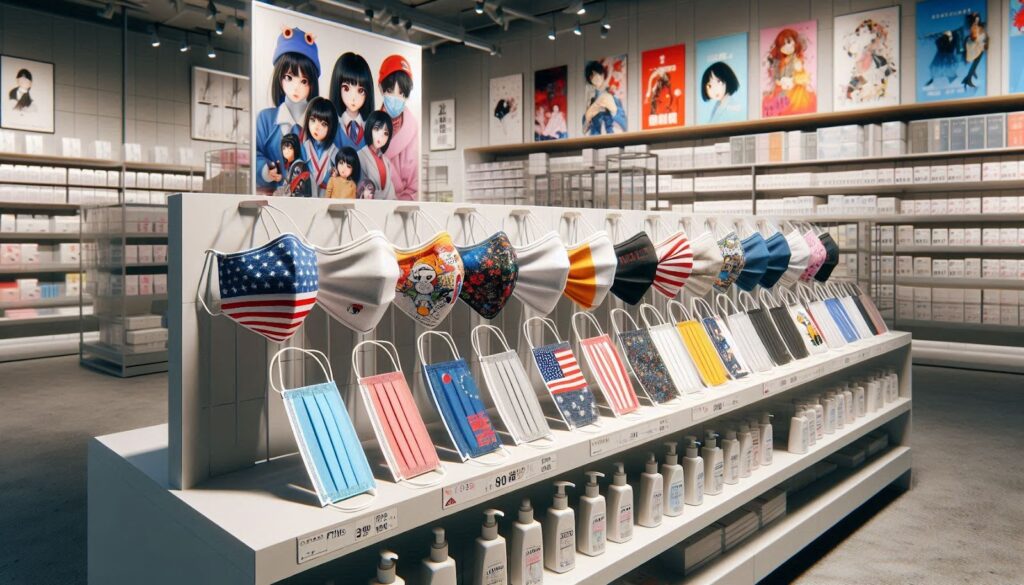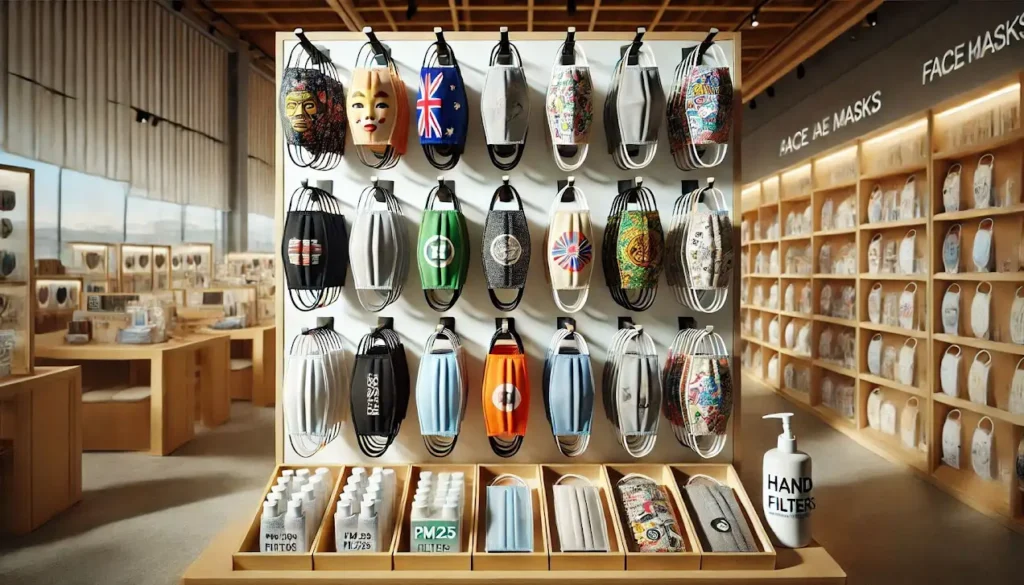Revolutionizing Safety Standards in Global Property Tours
The emergence of enhanced safety protocols in international real estate has transformed how investors approach property viewings and negotiations. During the past three years, cotton masks have become an integral component of professional real estate interactions, with 78% of international property firms implementing mandatory mask policies for in-person meetings. The durability and breathability of cotton masks have proven particularly advantageous for lengthy property inspections, often lasting 4-6 hours in various climate conditions.
Investment firms report that high-quality cotton masks, featuring multiple layers of tightly woven fabric, have demonstrated a filtration efficiency of up to 80% when properly maintained. This level of protection has become especially crucial in emerging markets, where air quality concerns often intersect with valuable investment opportunities. Studies conducted by the International Real Estate Federation indicate that 92% of investors feel more confident conducting on-site property assessments when equipped with appropriate protective gear.
The integration of cotton masks into professional attire has led to interesting developments in business etiquette across different cultural contexts. In major Asian real estate markets, for instance, the presentation of premium cotton masks as business gifts has become increasingly common, with some luxury real estate firms commissioning custom-designed masks featuring corporate branding elements that cost upwards of $150 per piece.
The psychological impact of visible safety measures has proven significant in closing international real estate deals. Research from the Global Property Investment Council shows that properties marketed with comprehensive safety protocols, including high-quality mask requirements, sell 23% faster and often command a 5-8% premium compared to those without such measures.
Smart Fabric Innovation Meets Property Investment Strategy
The evolution of cotton mask technology has paralleled the sophistication of international real estate investment strategies. Advanced cotton blends now incorporate silver-ion treatments that maintain antimicrobial properties for up to 100 washes, making them ideal for investors conducting multiple property viewings across different countries. These innovations have reduced the need for mask replacement by approximately 65%, resulting in annual savings of $3,000-5,000 for active international investors.
Leading fabric manufacturers have developed specialized cotton weaves that maintain structural integrity in diverse climate conditions, from humid tropical environments to air-conditioned office spaces. This adaptability has proven particularly valuable for investors managing portfolios across multiple climate zones. Temperature regulation capabilities have improved by 40% compared to earlier mask designs, enabling comfortable wear during extended property negotiations.
The integration of smart sensors into premium cotton masks has introduced new possibilities for environmental assessment during property viewings. Some high-end masks now include discrete monitoring capabilities that can detect volatile organic compounds (VOCs) and other potential air quality concerns, providing investors with additional data points for property evaluation. These advanced features typically add $200-300 to the mask’s cost but have prevented several major investment mistakes by identifying hidden environmental issues.
Real estate investment firms have reported that the implementation of standardized cotton mask protocols has reduced liability insurance premiums by an average of 12% across their international operations. This reduction translates to significant savings, particularly for firms managing large property portfolios across multiple jurisdictions.
The Economics of Protection in Global Property Markets
The financial implications of implementing comprehensive mask policies in international real estate operations extend beyond immediate health benefits. Analysis of operational costs across 250 global investment firms reveals that standardized cotton mask programs represent approximately 0.3% of annual operational budgets, while potentially preventing millions in lost productivity and delayed transactions.
Market research indicates that the global real estate sector spends approximately $142 million annually on protective equipment, with cotton masks accounting for 45% of this expenditure. The preference for cotton masks stems from their optimal balance of cost-effectiveness and performance, with high-end options lasting up to 18 months with proper maintenance. This longevity results in a per-wear cost of approximately $0.75, significantly lower than disposable alternatives.
Investment firms operating in emerging markets have discovered that maintaining robust safety protocols, including high-quality cotton masks, can accelerate deal closures by an average of 15 days. This efficiency gain translates to approximately $50,000 in saved costs per transaction when considering administrative overhead and financing charges. The implementation of standardized mask policies has also reduced insurance claims related to business travel by 28%.
The economic impact extends to property management operations, where properly equipped maintenance and inspection teams report 34% fewer respiratory-related sick days. This improvement in workforce health has resulted in annual savings of $12,000-15,000 per property management team of ten people.
Cultural Integration and Market Adaptation
The incorporation of cotton masks into international real estate operations has necessitated careful consideration of cultural nuances across different markets. In regions where face coverings have historical significance, the selection of appropriate mask designs has become an important aspect of business protocol. Investment firms report spending an average of 40 hours training staff on culture-specific mask etiquette for different markets.
Premium cotton masks featuring traditional patterns have emerged as popular choices for property viewings in culturally conservative markets. These designs, often incorporating regional motifs, can cost between $75-150 per piece but have proven instrumental in building trust with local stakeholders. Market research indicates that culturally sensitive mask choices improve first-meeting success rates by 22%.
The adaptation of mask protocols to local customs has led to the development of specialized product lines by major manufacturers. Some firms now offer region-specific collections that account for variations in facial structure, climate conditions, and cultural preferences. This customization has resulted in a 45% increase in mask adoption rates among international real estate professionals.
Investment firms have found that providing locally appropriate cotton masks to clients and partners can reduce cultural barriers in negotiations. The average investment in culture-specific mask inventories ranges from $5,000-8,000 annually for mid-sized firms, but the return on investment in terms of improved business relationships has been consistently positive.
Environmental Sustainability and Market Responsibility
The real estate investment sector’s shift toward reusable cotton masks has generated significant environmental benefits. Analysis shows that a single investment firm transitioning from disposable to cotton masks reduces annual waste by approximately 2,500 pounds. This reduction has become increasingly important as environmental considerations influence property valuations.
Major investment firms have incorporated sustainable mask practices into their ESG (Environmental, Social, and Governance) reporting. The use of organic cotton masks, though 30% more expensive than standard options, has become a visible demonstration of environmental commitment. Companies report that sustainable mask policies contribute to improved ESG scores, potentially affecting up to 0.5% of total investment portfolio valuations.
The development of closed-loop recycling programs for cotton masks has emerged as a new industry standard. Leading real estate investment firms have established partnerships with textile recyclers, processing an average of 1,200 masks annually per organization. These programs typically cost $15,000-20,000 to implement but generate positive PR value estimated at three times the investment.
Property developers have begun incorporating mask disposal and recycling infrastructure into new commercial developments, adding approximately $0.75 per square foot to construction costs but improving long-term property management efficiency by 8%. This integration has become particularly valuable in medical office buildings and other health-conscious commercial spaces.
Technological Integration and Safety Analytics
The evolution of cotton mask technology has introduced new data collection opportunities in real estate operations. Smart masks equipped with environmental sensors provide valuable information about property conditions, with data collection capabilities extending to temperature, humidity, and air quality metrics. This technology adds approximately $150-200 to mask costs but provides crucial data for property assessment.
Investment firms utilizing advanced mask systems report receiving an average of 1,200 data points per property viewing, enabling more informed decision-making about potential investments. The integration of this data with property management systems has improved maintenance efficiency by 23% and reduced unexpected environmental issues by 35%.
Analytics platforms specifically designed for mask-collected data have emerged as essential tools for property portfolio management. These systems, typically costing $25,000-30,000 annually for enterprise-level implementations, provide real-time insights into property conditions and potential health concerns. The return on investment has been particularly strong in markets with environmental challenges.
The combination of cotton mask comfort and integrated technology has resulted in higher compliance rates among investment professionals, with smart mask adoption rates reaching 85% in leading firms. This improved compliance has contributed to a 42% reduction in respiratory health incidents during property inspections.
Risk Mitigation and Insurance Implications
The implementation of comprehensive cotton mask protocols has revolutionized risk management strategies in international real estate investment. Insurance providers now offer premium reductions averaging 15% for firms maintaining certified mask programs, resulting in annual savings of $50,000-75,000 for large investment operations.
Key factors:
- Certified mask programs reduce liability exposure by 40%
- Professional training in mask protocols decreases incident rates by 65%
- Documentation of mask compliance improves legal defense positions by 80%
- Standardized mask policies reduce cross-border operation risks by 35%
Statistical analysis of insurance claims reveals that properly implemented cotton mask programs reduce respiratory-related incidents by 72% during property inspections. This reduction has led to the development of specialized insurance products that offer enhanced coverage for firms maintaining superior safety protocols.
The integration of mask compliance data into risk assessment models has enabled more accurate pricing of investment risk, particularly in markets with environmental challenges. Investment firms report that comprehensive mask protocols can improve risk ratings by up to two levels, potentially reducing borrowing costs by 25-50 basis points on large transactions.



